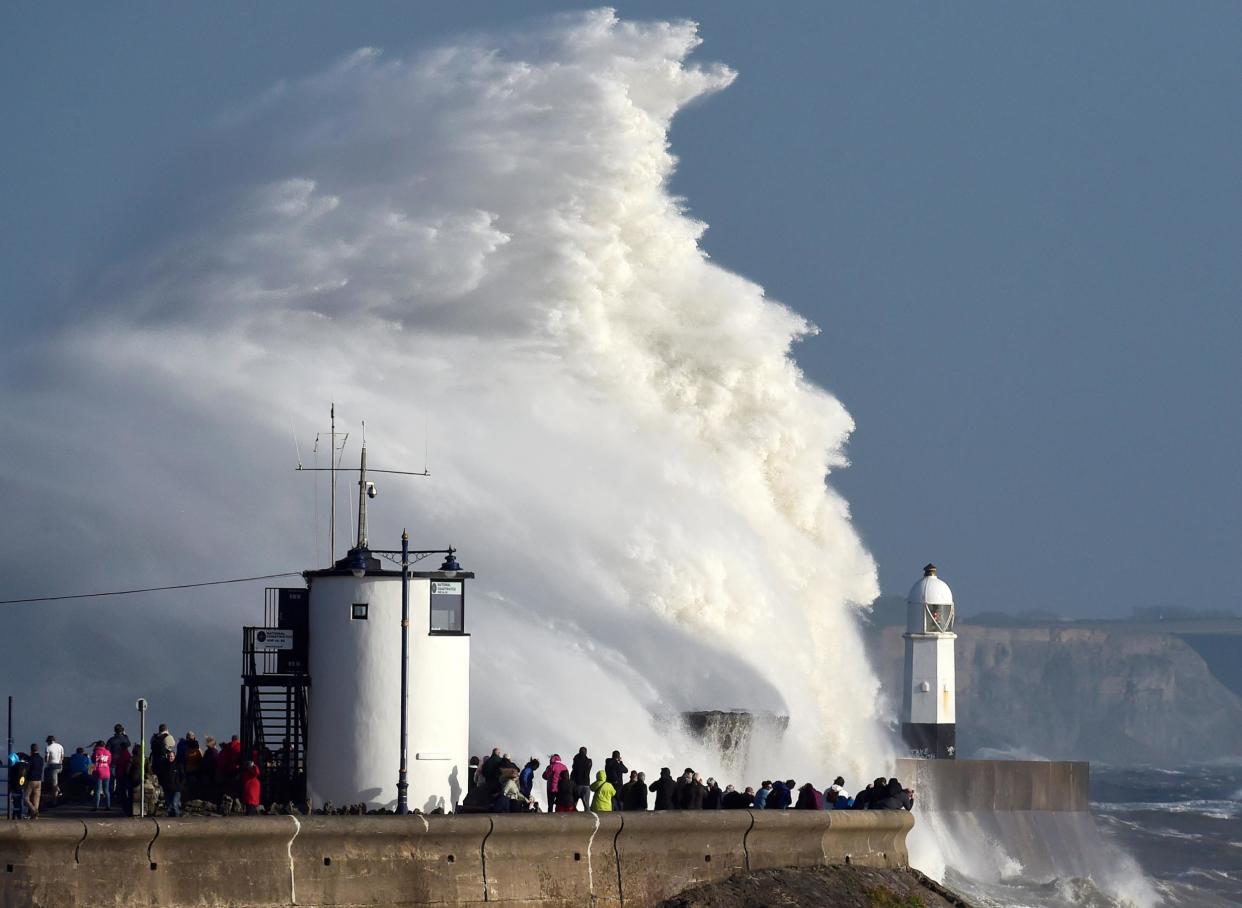Ophelia: Storm leaves 170,000 people in Ireland without power as it passes into North Sea

More than 170,000 people were still without power in Ireland a day after a powerful storm ripped through the country and onto Scotland, where buildings were destroyed.
But by Tuesday night, ex-Hurricane Ophelia had passed over the UK and weather warnings were lifted.
“The worst of Ophelia has now passed and the winds will continue to ease through the day today as she moves out into the North Sea,” said Met Office Chief Forecaster, Paul Gundersen.
“Strong, damaging winds were recorded in the warning areas on Monday with gusts of up 90mph recorded.”
It killed three people in Ireland and nearly 70,000 people remained without water on Tuesday.
The storm also brought widespread disruption as it swept north to Northern Ireland, Scotland and north western England, bringing high winds and heavy rains.
In Glasgow, part of a derelict block of flats already earmarked for partial demolition collapsed at about 4am, and a scout hall roof was blown off in Dumfries and Galloway as the region took the brunt of winds up to 77mph.
In Cumbria the county council said high winds had torn the roof from a house in Whitehaven and even torn traffic lights from their poles, as well as causing traffic disruption. Part of the roof of a stand at National League team Barrow AFC was also ripped off by the wind.
In total, around 50,000 homes in the UK temporarily lost power. There was significant transport disruption in Scotland and commuters were hit by delays after several rail lines were blocked by fallen trees.
Train services were temporarily hit between Glasgow and Edinburgh, and from the capital to Aberdeen, Dundee and Perth, as trees were blown on to tracks.
Ireland experienced the worst of the weather on Monday, with winds of almost 100mph damaging electricity networks and causing widespread disruption.
Irish Defence Force soldiers were deployed with vehicles and helicopters to help assess damage as thousands of staff from ESB, the Republic of Ireland's electricity network, worked to fix fallen and broken cables.
Schools on both sides of the Irish border remained closed for a second day as authorities began to assess the damage, but most are expected to open on Wednesday.
Ireland's national emergency co-ordination group was meeting in Dublin on Tuesday to assess the extent of the damage.
Prime Minister Theresa May spoke to her Irish counterpart Leo Varadkar on Monday afternoon to offer support.
The Met Office’s Mr Gundersen said: “A brief quieter spell will last through Wednesday though interspersed with some rainfall in parts of the UK before further strong winds and rain move in from the west at the end of the week.
“It is too early to be sure of details but there is potential for some disruption, so it’s best to stay up to date with the Met Office forecast. Despite some speculation in the media, Storm Brian has not been named.”

 Yahoo News
Yahoo News 
